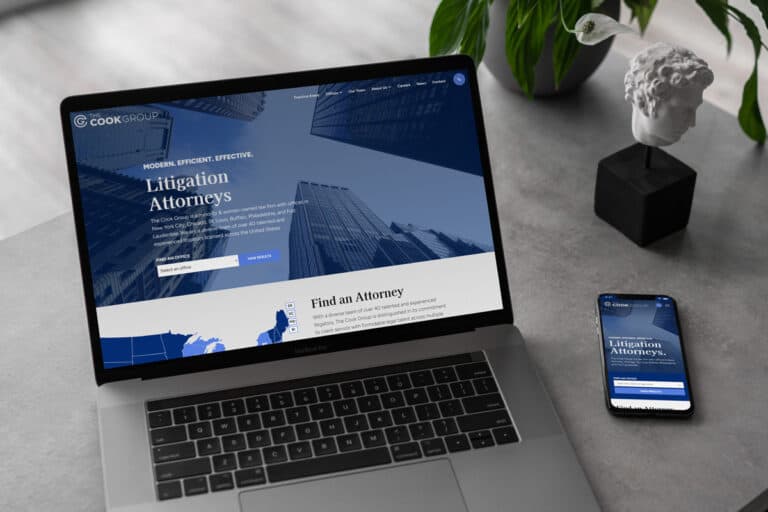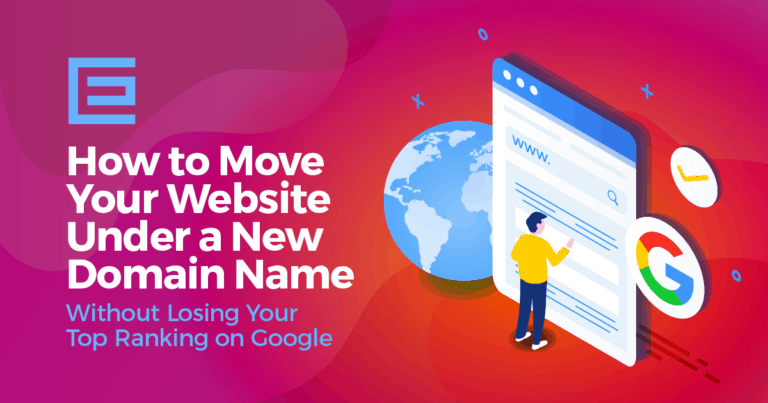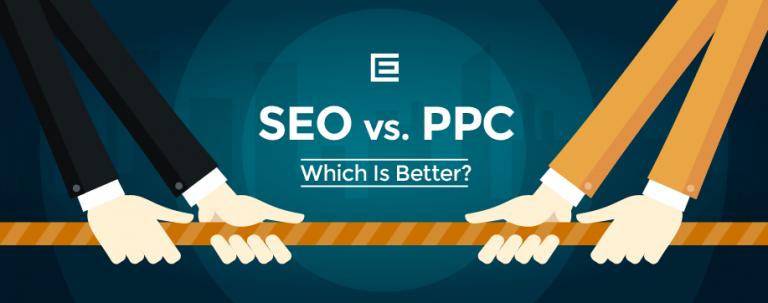Are you tired of losing visitors and potential customers because your website takes a long time to load? Well buckle up, because we’re about to unleash TheeDigital’s secrets to transform your slow WordPress site into a blazing-fast lead generation machine!
How to Tell if You are Losing Customers
The best way to know if you are losing customers and to keep track of your user engagement on the website is to review your website analytics. By following the data, a website administrator can determine what source of traffic is likely to convert, which segment of traffic is unqualified and so much more. Analytics is a virtual must-have to keep track of your website’s performance.
What is a Website Bounce Rate?
In Google Analytics 4 (GA4), bounce rate is the opposite of engagement rate. In other words, it’s the percentage of sessions where the user did not interact with your site.
Even if your website exactly matches a keyword search from a consumer, having a low engagement rate can tell Google that your website is not what consumers are looking for, and therefore drop your site in favor of one that meets the consumer needs.
If you aren’t familiar with the ranking factors Google uses to determine the best search result for a query, then take a look at “Why is My Website Not Ranking in Google?” for some additional insight.
The Stats
- Nearly 50% of users expect a load time of 2 seconds or less.
- If a website load time exceeds more than 3 seconds, then you can expect roughly 50% of your web traffic to leave.
- Customer satisfaction reduces significantly during web page loading delays.
The Importance of Speed for SEO, Search Ranking, and User Experience
Site speed is crucial for at least three reasons:
- Any website that Google recognizes as having a low engagement rate can find itself disappearing from the search rankings due to relevancy issues.
- Slow loading speeds deter users from staying and engaging your website. Google is all about customer satisfaction, and any website that delivers poor performance can be sure to drop in ranking.
- Any web user that leaves your website is a lost sale. There is only a brief opportunity to make an impression on a website visitor and a slow loading website will likely end any chance to convert the visitor into a sale.
Mobile vs Desktop
Mobile devices are now leading the charge on most internet searches. Even though mobile users are viewing websites through a smaller screen, they still expect the same speed and results they would receive on a desktop device. A key factor to improving mobile site speed and reducing lost customers is to implement a responsive design to your website.
This means that when a mobile user visits a responsive web page, the website recognizes the size of the browser window and renders the appropriate display to the user. This helps improve loading times and the users online experience.
Run a Speed Test
There are a lot of great speed test tools available but, there are a few that seem to perform better than others, provide different metrics and visuals to help improve your website performance. A speed test tool can provide suggestions and tips to help improve performance.
Google Page Speed Insights
Google’s Page Speed Insights is easy to navigate. Simply paste your website URL and select the Analyze button to submit your website for a speed test. Both a desktop and mobile analysis is present and provides easy to read details that can help improve your website performance.
Pingdom
Pingdom provides a simple dashboard that allows you to test from a specific location. The results are displayed below the query and provide details about current performance. Additional details that offer tips for improvement will be displayed below the performance stats.
WebPageTest
The WebPageTest.org tool is unique compared to the previous examples. The drop down menus allow for you to test specific browsers and locations for website speed, so that you can test how your website performs across the web on different devices and servers. Additionally, the data delivered from the test is extremely comprehensive and may be more relevant to SEO professionals and individuals with a high level of experience with web design and digital marketing.
It is beneficial to use more than one tool to get the most accurate details about your website and to see which tool best suits your skill and comfort level.
How To Improve Site Speed
After you have tested your website speed and know how your site is currently performing, consider trying these tips for getting a faster load time and eliminate high bounce rates.
1- Use A Caching Plugin
A caching plugin helps speed up a website by storing and serving pre-generated static copies of web pages and resources. Caching is a crucial speed-enhancing tool, especially for content management systems like WordPress, which can be resource-intensive when generating pages dynamically.
Ultimately, the best caching plugin for your WordPress website depends on your specific requirements, your hosting environment, and your comfort level with configuring and managing caching settings. At TheeDigital, we typically use WP Rocket and sometimes we add Autoptimize.
2 – Optimize Your Images for the Web
Optimizing images for the web is essential for reducing page load times. It’s best to optimize your photos BEFORE you load them on your website. Never rely on WordPress to optimize them for you. You’ll want to resize them to the dimensions they will be displayed on your web pages, and save them as either WebP, progressive Jpeg, or transparent png. Once the images are on your site, you can use a plugin like Smush.it to further reduce image file sizes for you.
3 – Optimize Your Database
WP-Optimize is a plugin that cleans up unnecessary data that’s dragging your site down. This can include spam comments, post revisions and drafts, pingbacks, trackbacks, and unapproved content. It’ll also defrag MySQL and schedule weekly optimizations.
4 – Don’t Use Too Many Plugins
When working with plugins, exercise careful selection and avoid using multiple plugins for the same task. For instance, I’ve seen sites with 2 form plugins, 3 security plugins, and multiple caching plugins. More is NOT better in this case! Their code can conflict with each other and cause errors and slow your site down.
Also, ensure that your chosen plugins continue to receive regular security updates and remain compatible with the latest WordPress version. Furthermore, don’t forget to deactivate and uninstall any outdated plugins that you no longer use. Even if they’re not active, the files still reside on your server and pose a potential security risk and may impact your site performance.
5 – Use A Lightweight Theme
Opt for a lightweight theme without additional page builders to maintain the speed of your website. Consider creating a custom theme tailored to your specific requirements, including only the necessary features. This approach minimizes unnecessary code and ensures optimal speed.
6 – Use A Content Delivery Network (CDN)
Using a CDN like Cloudflare improves site speed by caching and serving content from servers located closer to the user, reducing latency and distributing the load. It also enhances website security, scalability, and reliability. Integrating a CDN into your website’s architecture can significantly enhance its speed and overall performance, especially for users located in different parts of the world.
7 – Choose a Good Hosting Provider
Regardless of how well your website is developed, your hosting provider can play a role in causing slow loading times.
Hosting factors that can slow down your website include outdated server hardware, shared hosting with resource-hungry neighbors, limited resources, inadequate bandwidth, server overloading and more.
A reputable hosting provider typically invests in high-quality server infrastructure, advanced hardware, and robust network connections, all of which are essential for fast and reliable website loading times. Moreover, reputable hosting companies often offer features like CDNs and server optimization tools to further enhance speed. Their commitment to uptime and technical support ensures that any potential issues affecting site speed are promptly addressed, contributing to an overall smoother and more efficient user experience for your visitors.
By choosing a reputable hosting provider, you can rely on their expertise and resources to keep your website running at optimal speed, helping you retain and attract users in today’s fast-paced online environment.
Need Help Speeding Up Your Website?
If you need help speeding up your website TheeDigital’s support team can help! Go to our support page to submit a support request and our team will get back to you promptly. There are also helpful FAQs that might answer your question right away!
Aim for under 2.5 seconds on mobile and desktop. Every additional second of delay can increase bounce rates significantly and erode trust before visitors even see your content
Large images, unoptimized video or media files, inefficient scripts (JavaScript/CSS), uncompressed files, too many plugins, and lack of caching are frequent offenders.
Use tools like Google PageSpeed Insights, GTmetrix, or WebPageTest. These tools break down your site’s loading stages and show exactly which elements are dragging things down.
Yes. Studies show that faster pages lead to higher engagement, lower bounce rates, and more conversions. Visitors are more likely to stay, browse, and take action if your site is responsive and fast.
Priority moves include optimizing images, enabling browser caching, compressing code, deferring non-critical scripts, and using a faster hosting solution or CDN (Content Delivery Network).
Regularly—ideally monthly or whenever you push new code or content. Performance can degrade over time as you add new features or media; staying proactive ensures you don’t lose leads again.




